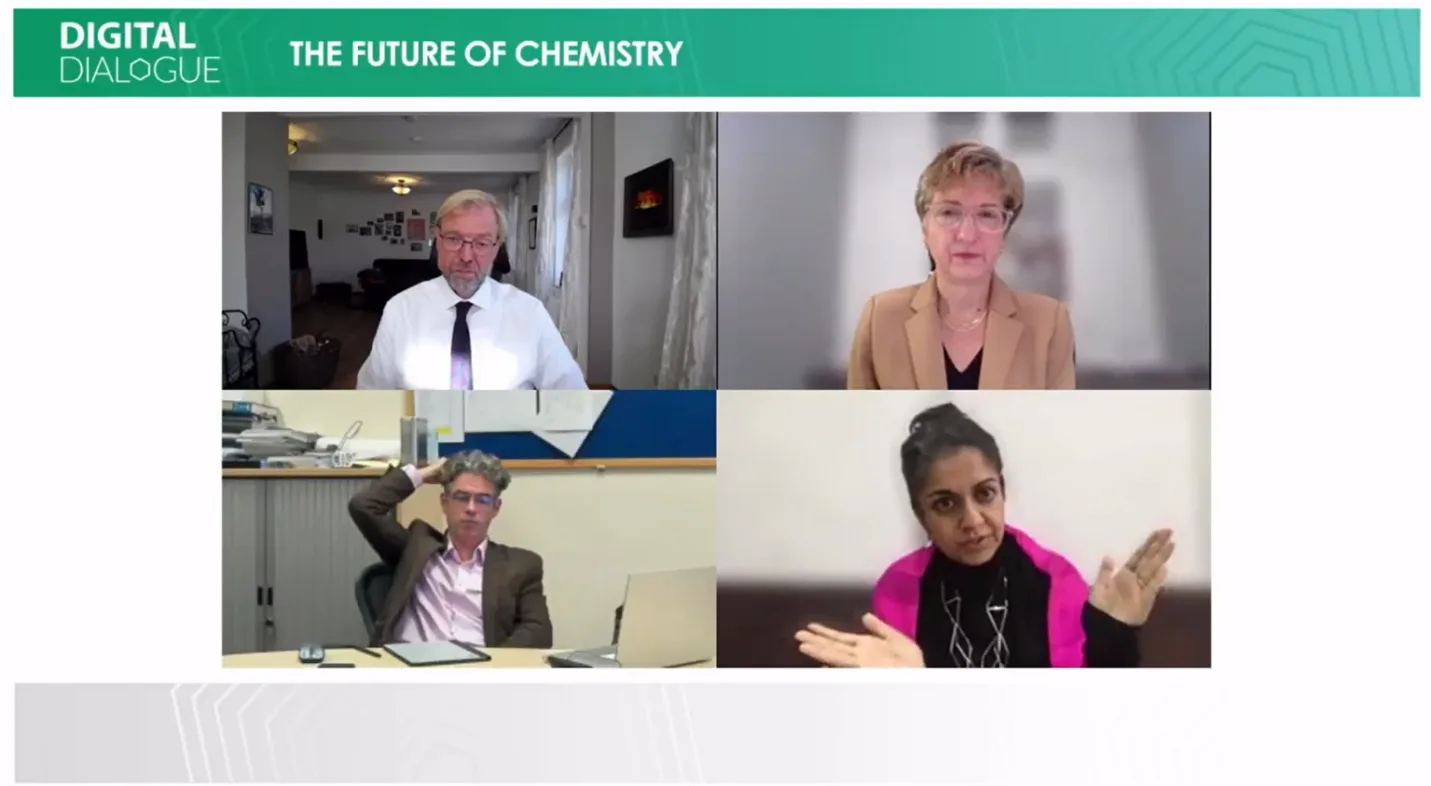
Climate change, limited natural resources, digitalisation, evolving demographics, up-skilling, re-skilling and maintaining professional professional workforce are just some of the challenges that the world is facing today. How can chemistry help society respond to these challenges?
During Cefic’s special Digital Dialogue on 29 October 2021, we attempted to shed some light on the future of chemistry by listening to the academia, government, industry and civil society’s perspectives.
Setting priorities to achieve a sustainable world
In his opening message Member of the European Parliament Pascal Canfin thanked the European chemical industry for the support to the Green Deal and Climate Law objectives. Emphasising the importance of aligning policy, regulation and technological progress, MEP Canfin stressed that we are now entering the core of an unprecedented and massive change and the only way we can make the Green Deal a success is to find the right way to provide the results from both political and industrial sides. “If we make a decision, but there is no technology behind, it is a ‘paper decision’. But at the same time, if you have the right technology, but there is no good rule to massively upscale the market share of this technology, then it doesn’t lead anywhere neither” he said.
Alexa Dembek, Chief Technology & Sustainability Officer at DuPont believes that three crucial elements are needed to achieve a sustainable future: innovation, protection and empowerment. Science and science-based innovation are critical, and the role of industry is to ensure these innovations find their practical application at the market.
Professor Lee Cronin, Group Leader, Regius Chair of Chemistry at University of Glasgow stressed that the right education, collaboration and alignment are key. To ensure global cooperation towards innovating breakthrough solutions, we need to make chemistry collaborative and programmable. Chemists need to be able to share their discoveries instantly and amplify the impact of the academia on the society. “Publication is not enough. We need a way of digitizing the molecules and materials to get them from one lab to the other instantly, and we need it NOW, not in ten years. <…> If you do the equivalent of Spotify which I call ‘Chemify’, what does it mean? I make a molecule in my lab, I have an allocated code, I put it on Chemify and I can share and trace the use.”
“Chemists are going to save the world in collaboration not just with citizens but with the industry and with people across many different sectors” concluded Prof. Cronin.
Co-founder and Director of Superflux highlighted that one of key challenges today is the need to question the concentration of power among academia, large businesses, governments and explore its redistribution. It is crucial to give voices to marginalised people and design a fair and inclusive system respecting the planetary boundaries.
What about the future chemists?
Closing the debate, Cefic’s President and BASF CEO Martin Brudermüller stressed that the chemical industry is now at a crossroad facing several massive challenges at the same time: getting circular, reducing CO2 emissions, ensuring digitalisation and others. “To meet these challenges, we need a well-structured roadmap, alignment, collaboration and innovation. We want to reflect on the perspectives and ideas of young generations and attract new talents to work for the industry, shape this massive transformation and innovate” highlighted Martin Brudermüller.
Christel Koopman, a newly graduated chemical engineer shared in a video message that “My love for chemistry solidified when I realised the big role chemistry can play in sustainability and fighting the climate change. <…> When I introduce myself to people and tell them that I’m studying or working in chemical engineering, I want them to see that as contributing to the solution.”









